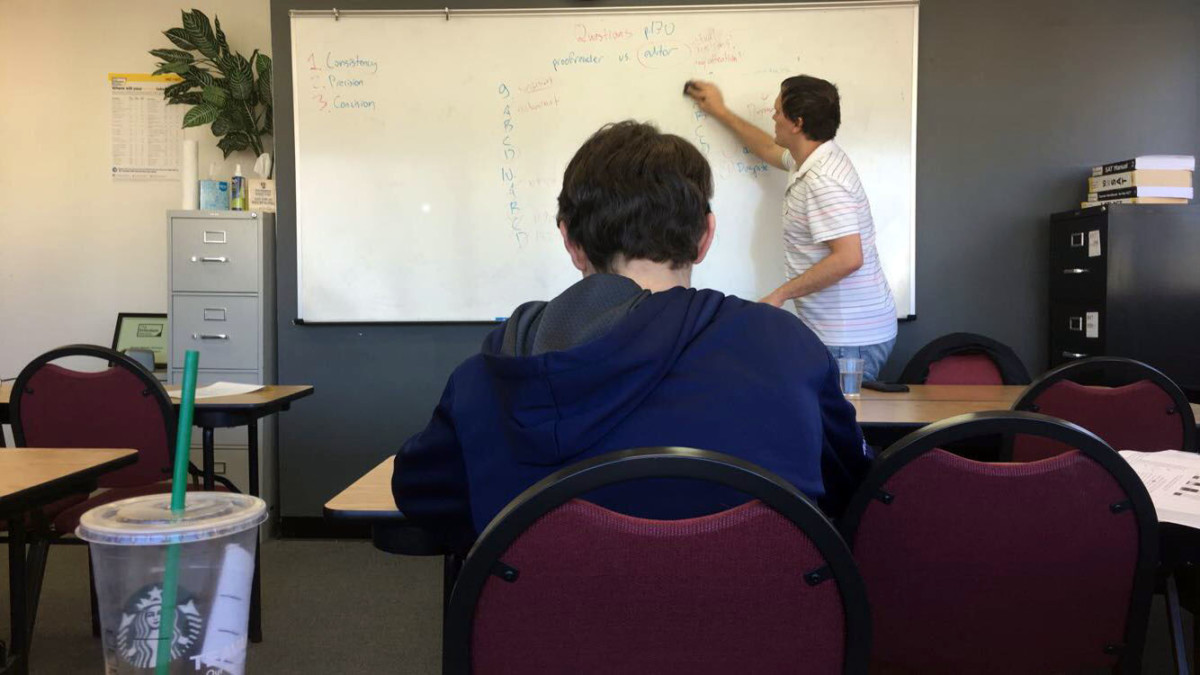Izzy Nesbett, Reporter
@izzyncourant
Junior year is defined by many as the hardest year of high school mostly due to the hype of the SAT and ACT. Since childhood, parents, friends and teachers make the SAT and ACT out to be the tests that determine your future. Because of this, many people have different beliefs of the best way to prepare for these tests.
Choosing whether to take the SAT or the ACT may seem daunting. Many people take both of the tests and see which they perform better on. Linda McGann, a guidance counselor at NCHS said, “the process starts when the kids take the PSAT and they get their results back.”
She then asks the students how comfortable they felt while taking the SAT. If their scores match their academic standings then she says the student should focus on excelling on the SAT. If not, she suggests that they try the ACT for comparison.
Some people like Anna Thérèse Mehra, a junior who received a perfect score on the ACT, choose to focus on the ACT because of its emphasis on science. “I liked the fact that the exam covers science because I got perfect scores on the SAT math and SAT chemistry subject tests,” Anna Thérèse said.
Overall, the SAT is slower paced with more analytical questions while the ACT is less analytical but faster paced. According to Great Value Colleges, “The ACT is a straightforward content test, which may make it easier for students who are familiar with the content tested. The SAT focuses on logic and reasoning rather than content, which might make it a better bet for students who do well with puzzles and are willing to learn SAT-specific strategies to raise their scores.”
Once students have decided which test is best for them, it is time to start studying! Natasha Tchir, a National Merit Scholar and senior at NCHS, chose to take the SAT. “I personally never did tutoring or classes. I found just using the review books was really helpful,” Natasha said. She also took the advantage of online tutoring. “Khan Academy was definitely the thing I used the most to study because it personalizes your studying,” Natasha said. Her viewpoint is different from that of other students who pay to attend classes, or tutoring sessions.
But Ms. McGann said, “If the time of the preparatory classes takes you away from what you’re doing in school, it’s not worth it.” She added that there is no “right” way to study; it just depends on what type of learner you are.
Anna Thérèse chose to approach her studying taking timed practice tests at home. “I did so many tests I found myself saying in casual conversations, ‘Oh I read about that in one of my reading passages,”’ Anna Thérèse said.
Ms. McGann also agrees with this approach saying, “I think it really depends on how much a person is going to put into studying.” She said that students who incorporate practice tests into their homework, raise their score, no matter what. “Take out a book of ten practice tests from the library and do it religiously,” Ms. McGann said.
After all of the prep that the students go through before the test, some still do not receive the score they were aiming for. With available tests in surrounding towns and areas, however, students can take the SAT or ACT almost every month between December and June.
According to Testive.com, you should do “one last review of your toughest subject, eat a good dinner, prepare your test materials, take time to relax, get a good night’s sleep, and follow the specific advice from your tutor” the night before the test.
However, different students use different approaches. The night before Anna Therese’s perfect test she said “I relaxed and had fun with my family, and then, of course…I prayed…probably more intensely than usual!”




